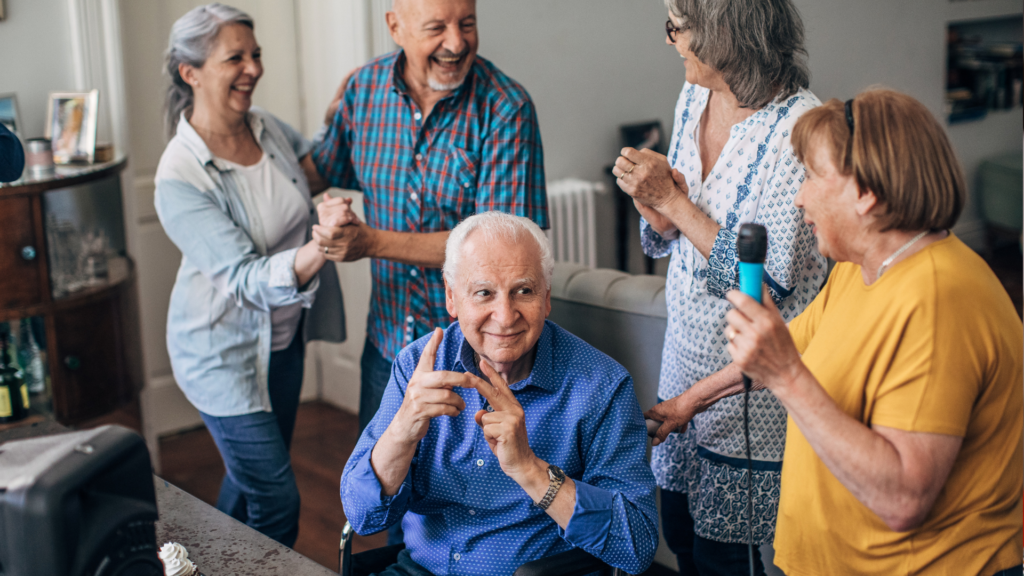The Power of Music in the Lives of Older Adults

Music transcends time and generations, offering far more than just entertainment—it’s a therapeutic tool with the power to enhance quality of life, particularly for older adults. As individuals age, music becomes a meaningful companion, addressing emotional, cognitive, and social needs. Whether it’s the uplifting rhythm of a favorite song or the soothing cadence of a calming melody, music enriches daily life, fostering well-being and connection in unique and impactful ways.
The Science Behind Music’s Impact on Aging
Recent research from the University of Michigan, featured in Neuroscience News, underscores the profound health benefits of music for adults aged 50 to 80. This comprehensive study found that 98% of participants reported at least one health-related benefit from engaging with music. These benefits included reduced stress, improved mood, and increased energy levels. Notably, music’s ability to lower cortisol—the hormone responsible for stress—and to trigger positive emotional responses demonstrates its immense potential as a therapeutic tool for promoting healthy aging. Music also supports better blood pressure regulation and depression relief, further solidifying its value in healthcare and wellness strategies.
Enhancing Cognitive and Emotional Well-Being
Engaging with music activates several areas of the brain associated with memory, emotion, and motor coordination. For older adults, this stimulation can lead to significant improvements in cognitive function and emotional stability. Listening to or participating in musical activities can reduce feelings of isolation and confusion, especially for those living with dementia. Familiar melodies have the power to unlock long-lost memories, creating moments of clarity and joy. In addition, music serves as an effective tool for managing chronic conditions, helping to alleviate symptoms of agitation and depression while promoting a sense of comfort and reassurance.
Creating Social Connections Through Music
Music not only benefits individuals on a personal level but also fosters meaningful social interactions. Group sing-alongs, choir participation, or simply sharing a concert with loved ones create opportunities for connection and shared experiences. These musical moments can strengthen relationships and bring a sense of belonging, which is particularly valuable for seniors who may feel isolated. According to the University of Michigan study, 60% of respondents found music energizing and motivating, underscoring its ability to create joyful and engaging communal experiences.
Why Music Matters for Quality of Life
Music’s role in improving overall quality of life is undeniable. Simple activities like singing or listening to music can provide emotional and physical benefits, including improved mood and reduced anxiety. According to the same study, 65% of older adults reported that music improves their mental health, while others noted its ability to provide comfort during challenging moments. These findings highlight the universal appeal of music as a source of healing and connection, making it an essential tool in senior care settings.
Link to study: https://neurosciencenews.com/music-aging-health-25584/
MusicFirst: Transforming Lives Through Personalized Music
Coro Health’s MusicFirst program harnesses the power of music to create meaningful moments for older adults. This innovative platform offers curated playlists tailored to individual preferences and needs, ensuring that each resident receives a personalized experience. Whether it’s calming music to reduce agitation or energetic tunes to inspire movement, MusicFirst enables caregivers to create a supportive environment that promotes relaxation, engagement, and joy.
By integrating MusicFirst into your community’s care strategy, you can bring the proven benefits of therapeutic music to life, enriching the daily lives of residents and fostering connections that make every moment meaningful.